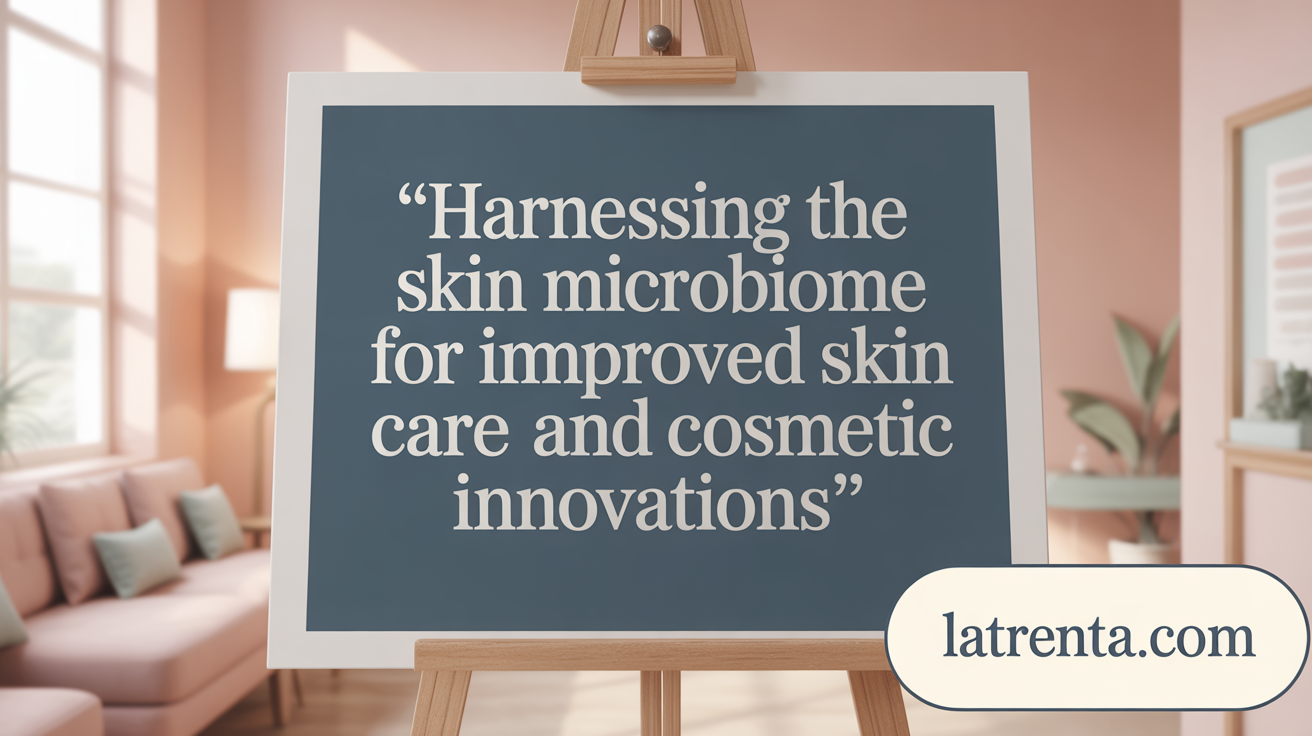Introduction to Skin’s Role in Aesthetic Success
Your skin is not simply a canvas for cosmetic products and procedures—it is a dynamic organ that profoundly influences how treatments perform and appear. Understanding your skin’s unique characteristics, from its type and condition to its genetic background and microbiome composition, is crucial in achieving desirable and lasting aesthetic results. This article explores the multifaceted nature of skin quality, its biological underpinnings, and how personalized approaches informed by detailed skin analysis elevate cosmetic efficacy and satisfaction.
Defining Skin Quality and Its Multifaceted Attributes

What does skin quality mean?
Skin quality is a comprehensive term that describes the overall health, appearance, and functionality of the skin. It encompasses various attributes such as texture, tone, hydration, elasticity, and radiance. Visually, it can be characterized by features like uneven pigmentation, dullness, redness, pore size, and the smoothness of the skin surface.
Beyond what is visible, skin quality reflects underlying mechanical properties like firmness, elasticity, and resilience, which are crucial for the skin’s ability to move, recoil, and maintain a youthful appearance. These attributes are rooted in the biological health of the skin, heavily influenced by the levels of collagen, elastin, and hyaluronic acid.
It is important to recognize that skin quality is not solely determined by external factors. Internal health, genetics, and environmental exposures such as sun and pollution exposure play vital roles. Good skin quality often corresponds with a firm, well-hydrated, and smooth appearance, which can enhance self-confidence and social perception.
Furthermore, perceptions of skin quality impact emotional well-being, affecting feelings of attractiveness and self-esteem. Maintaining optimal skin quality involves a holistic approach—appropriate skincare, treatments, lifestyle choices, and protection against damage—all aimed at supporting the skin’s biological functions and aesthetic appeal.
Visual, mechanical, and topographical skin attributes
Skin attributes can be categorized into three main groups:
- Visual attributes include pigmentation, redness, dullness, radiance, oiliness, dryness, roughness, fine lines, coarse lines, pore visibility, crepiness, and hydration levels.
- Mechanical attributes relate to the skin’s ability to stretch, recoil, and maintain firmness. These include elasticity, pliability, firmness, thickness, and tightness.
- Topographical parameters involve the surface landscape of the skin, such as smoothness, presence of lines or wrinkles, pore size, and crepiness, which can be objectively measured using imaging techniques.
Biological factors underpinning skin quality
A healthy skin depends greatly on biological factors. The dermis, which is the middle layer of the skin, contains collagen fibers, blood vessels, and glands essential for maintaining strength, elasticity, and speed of healing. Collagen loss and decreased elastin production over time contribute to signs of aging like wrinkles and sagging.
Hyaluronic acid and other natural moisturizing factors (NMFs) are vital for keeping the skin hydrated. When these biological components decline, skin becomes less plump, more fragile, and prone to damage.
These biological elements are influenced by genetics, lifestyle, and environmental impacts. For example, UV radiation accelerates collagen breakdown, speeding up aging signs.
Psychosocial impacts of skin quality
Beyond physical health, skin quality profoundly affects a person’s emotional health and social interactions. Clear, well-maintained skin often boosts confidence, enhances attractiveness, and fosters positive social perceptions.
Conversely, skin issues like dullness, redness, or scars can lead to feelings of self-consciousness, reduced self-esteem, and social withdrawal. As such, improving skin quality is not only a matter of cosmetic appeal but also a significant factor in overall mental wellness.
In conclusion, skin quality is a dynamic and multifaceted aspect of our health and appearance. It combines visual, mechanical, and biological elements influenced by internal and external factors, underlining the importance of a holistic approach to skincare. Understanding these diverse attributes helps in tailoring personalized treatments and achieving youthful, healthy skin.
Understanding Skin Types: Foundation for Effective Skincare

What are the five primary skin types and their characteristics?
The American Academy of Dermatology classifies skin into five main types: oily, dry, normal, combination, and sensitive.
- Oily skin produces an excess of sebum, leading to a glossy appearance, enlarged pores, and a tendency for acne and breakouts.
- Dry skin generates less oil, resulting in a rough, flaky, and sometimes itchy surface, often with dullness and tightness.
- Normal skin is well-balanced, feeling comfortable, with a smooth texture, smaller pores, and good hydration.
- Combination skin features a mix of oily areas—typically the T-zone (forehead, nose, chin)—and dry or normal cheeks.
- Sensitive skin reacts easily to external factors, showing redness, irritation, or inflammation.
Recognizing these traits helps in selecting suitable skincare routines and products.
How can one analyze their own skin type effectively?
To determine your skin type at home, start by gently washing your face with a mild cleanser and pat dry. Wait for about 30 minutes without applying any moisturizer, serum, or makeup. During this period, observe how your skin feels and looks.
You may notice if it feels tight or flaky (dry), oily or shimmering (oily), or comfortably balanced (normal). Also, use a clean blotting paper pressed lightly on different areas of your face. If the paper picks up excess oil from all areas, your skin is likely oily. If there's little to no oil, it's probably dry.
Another tip is to monitor how your skin performs from morning to evening. Oily skin tends to stay shiny longer, while dry skin may feel tight or flaky after a few hours.
Why is identifying your skin type important?
Knowing your skin type is fundamental to building an effective skincare routine. Using products formulated for your specific type ensures better results and reduces the risk of complications such as irritation, breakouts, or excessive dryness. For instance, oily skin benefits from oil-free, non-comedogenic products, while dry skin requires intense hydration with humectants and emollients.
What are common challenges faced by each skin type?
- Oily skin: prone to acne and enlarged pores, with a risk of over-drying if products are too harsh.
- Dry skin: may experience dullness, sensitivity, and increased appearance of fine lines.
- Normal skin: generally hassle-free but still needs routine maintenance.
- Combination skin: balancing different products to target oily and dry areas can be tricky.
- Sensitive skin: easily irritated, often reacting to certain ingredients or environmental triggers.
Understanding these challenges aids in tailoring a skincare plan that keeps your skin healthy and resilient.
Biological and Genetic Influences on Skin Health and Cosmetic Response

What biological and genetic factors affect skin health and appearance?
Genetic and biological elements play a vital role in determining the overall health, texture, and aging of skin. Several genes are instrumental in regulating crucial skin features such as elasticity, pigmentation, and barrier integrity.
For instance, the ELN gene codes for elastin, a protein that imparts resilience and elasticity to skin tissue. Variations here can lead to reduced skin firmness and increased sagging as one ages. The COL1A1 gene influences collagen I fibers, which are foundational for skin strength and elasticity; diminished collagen levels result in wrinkles and loss of youthful plumpness.
Pigmentation is largely affected by the MC1R gene, which governs melanin production. Different variants can lead to diverse skin tones and susceptibility to pigmentation issues. Other genes, like AQP3, involved in water transport, contribute to skin hydration and barrier function. Variants in these genes can cause dry, sensitive skin prone to irritation.
A panel of genes related to antioxidant defenses, such as SOD2 and GPX1, helps neutralize oxidative stress from environmental exposure, slowing aging signs. Meanwhile, MMP1 encodes matrix metalloproteinases that remodel the extracellular matrix; excessive activity here can worsen skin aging by degrading collagen and elastin during stress or photoaging.
Genes influencing telomere length, such as TERT, impact the regenerative capacity of skin cells. Shorter telomeres are linked to premature aging features like fine lines, uneven texture, and loss of bounce.
Furthermore, genetic variations affecting skin barrier integrity, like mutations in FLG (filaggrin) or AQP3, can lead to increased sensitivity, moisture loss, and heightened response to irritants.
Overall, these genetic factors orchestrate complex biological pathways — including oxidative stress responses, inflammation, and cellular aging — shaping how skin ages, how resilient it is to environmental assault, and how it responds to cosmetic treatments. Understanding these genetic influences enables more personalized skincare approaches, optimizing outcomes for individual needs.
More Information Search Query: genetics and biological factors impacting skin health and aging
Role of the Skin Microbiome in Cosmetic Efficacy and Skin Wellness

How does the skin microbiome impact cosmetic efficacy and overall skin health?
The skin microbiome plays a crucial role in maintaining skin health and enhancing the effectiveness of cosmetic products. It consists of a diverse community of bacteria, fungi, and viruses that reside on the skin. This microbial ecosystem helps protect against harmful pathogens, supports the skin's immune function, and sustains the skin barrier. A balanced microbiome prevents overgrowth of dangerous microbes like Staphylococcus aureus, which can cause infections and conditions such as eczema.
Cosmetic products can influence the microbiome in various ways. Some formulations are designed to promote microbial diversity and strengthen the skin’s natural defenses, thereby improving skin tone, resilience, and overall health. Conversely, certain ingredients or preservatives may disrupt the microbial balance, leading to dysbiosis, increased irritation, or diminished treatment results.
The composition of skin microbiota impacts how well active ingredients from skincare products penetrate and operate. For example, a stable microbiome can enhance the skin’s barrier, allowing better absorption of beneficial compounds and improving their efficacy. Advances in microbiome research, including sophisticated analysis techniques, now allow scientists to monitor microbial shifts caused by cosmetic use. This understanding helps develop products that nurture rather than harm the skin's microbial community, fostering healthier skin and more effective cosmetic outcomes.
In summary, maintaining a healthy skin microbiome is essential not only for skin health but also for maximizing the benefits of cosmetic treatments, making microbiome-friendly products a promising area in skincare innovation.
Scientific Foundations of Skin’s Response to Cosmetic Ingredients and Procedures

What is the science behind the skin's response to cosmetic ingredients and procedures?
The skin's reaction to cosmetic products and treatments is rooted in complex biological and physical processes. When a cosmetic ingredient is applied, it must first penetrate the outermost layer of the skin, the stratum corneum. This barrier is designed to protect against external insults but can be disrupted or bypassed depending on the ingredient’s properties, formulation, and delivery system.
Ingredients such as acids, retinoids, or peptides are formulated to enhance their ability to reach deeper layers. For example, actives like hyaluronic acid or vitamin C are chosen because of their molecular size and ability to penetrate efficiently, often aided by delivery technologies.
Once delivered, these substances interact with cellular components, triggering responses in regeneration, protection, or aging processes. Collagen-stimulating ingredients like copper peptides or retinoids activate fibroblasts to produce new collagen, improving skin firmness and elasticity.
The skin’s immune system also plays a critical role in its response. Molecules like defensins and cytokines help modulate inflammation and protect against pathogens. These responses can be beneficial, promoting healing and rejuvenation, or adverse, resulting in irritation or allergic reactions.
Factors such as the integrity of the skin barrier, enzyme activity, and individual sensitivities influence how the skin reacts. For instance, damaged or compromised barriers may absorb irritants more readily, leading to increased sensitivity.
Scientific research tools, including in vivo assessments and advanced imaging techniques like multiphoton confocal microscopy, help scientists observe how ingredients penetrate, distribute, and affect skin structures in real-time.
Extensive clinical studies validate the safety and effectiveness of ingredients and procedures. They also identify potential adverse reactions such as sensitization, irritation, or allergic responses, guiding the development of safer, more targeted cosmetic formulations.
Understanding these mechanisms enables dermatologists and researchers to create innovative skincare solutions that improve skin health while minimizing risks. Continuous advancements in cosmetic science are essential to tailor treatments to individual skin types and conditions, ensuring both efficacy and safety.
Impact of Skin’s Biological and Chemical Properties on Treatment Timelines and Effectiveness
How do skin's biological and chemical properties affect treatment timelines and effectiveness?
Skin's characteristics, including hydration, pH balance, lipid content, and collagen density, play a critical role in determining how quickly and effectively treatments work.
Hydration levels influence the skin’s ability to absorb active ingredients; well-hydrated skin tends to integrate serums and topical agents more efficiently, leading to faster visible improvements. Conversely, dry or dehydrated skin may slow down the absorption process, delaying results.
The skin’s pH balance, usually slightly acidic around 4.7 to 5.75, affects enzyme activity necessary for cell turnover and barrier function. Disruptions in pH, such as from harsh cleansers, can impair healing and slow treatment responses.
Lipid content is vital in maintaining the skin’s barrier and moisture retention. Absent or compromised lipids, common in dry or sensitive skin, can hinder penetration of treatments, extending timeframes for noticeable effects.
Age-related alterations, like reduced collagen production and decreased levels of glycosaminoglycans (GAGs), weaken structural integrity. These changes result in slower healing, increased recovery times, and sometimes diminished treatment outcomes.
External damage from sun exposure and environmental pollutants accelerates skin aging, causing damage to DNA, collagen, and elastin fibers. Such photoaging can make treatments less effective initially and require prolonged or combined approaches to achieve desired results.
Furthermore, the physicochemical properties of topical products—such as molecular size and lipophilicity—affect how well ingredients penetrate skin layers. Larger molecules or those with poor affinity for lipids may penetrate slowly, lengthening the timeline for efficacy.
Understanding these individual skin properties enables professionals to customize treatment plans, adjusting treatment intensity, frequency, and combination therapies. For instance, skin with compromised barrier function might need pre-treatment hydration or barrier repair strategies that extend the overall timeline but lead to better responses.
In essence, the biological and chemical makeup of the skin guides expectations concerning how quickly and effectively cosmetic and dermatological treatments will produce visible benefits. Tailoring approaches based on these factors maximizes efficacy and helps set realistic goals for patients.
Personalized Skincare: Tailoring Approaches to Individual Skin Profiles
What is the role of personalized skincare approaches based on individual skin characteristics?
Personalized skincare is centered on customizing treatments and product choices to match each person’s unique skin profile. It recognizes that no two skin types are exactly alike, influenced by genetics, structure, and external factors.
By gathering detailed data such as genetic information, clinical skin analyses, and insights from digital tools powered by artificial intelligence, skincare routines can be precisely targeted. This means addressing specific concerns like wrinkles, hyperpigmentation, or acne with interventions designed for the individual's skin, improving effectiveness while reducing risks of irritation.
Understanding genetic factors—such as genes affecting collagen, elastin, and immune response—helps predict how skin ages and reacts to environmental stressors. Recognizing ethnic variations in skin structure informs tailored treatments that respect different skin sensitivities and characteristics.
In practice, this approach involves selecting appropriate ingredients, adjusting routines over time based on skin responses, and using technology to monitor progress and update plans. For example, some may benefit from specific antioxidants, retinoids, or hydration strategies aligned with their genetic predispositions and environmental exposures.
The benefits of this personalized strategy include improved treatment outcomes, greater satisfaction, and long-term skin health. It ensures that interventions are safe, relevant, and adaptable to changing skin conditions.
Research and technological advances continue to develop, making personalized skincare increasingly accessible and effective. As we deepen our understanding of skin genetics and phenotype, this approach moves toward more precise, science-backed care for everyone.
Importance of Detailed Skin Analysis Before Cosmetic Application
Why is it important to carry out a detailed skin analysis before applying makeup or cosmetic treatments?
Performing a comprehensive skin assessment is crucial for achieving optimal results and ensuring safety. This process provides vital insights into your skin type, whether it's oily, dry, combination, or sensitive, and uncovers specific issues such as dehydration, pigmentation irregularities, or sensitivities.
By understanding these details, skincare professionals can tailor treatments and recommend suitable products. For instance, a person with sensitive skin may need hypoallergenic formulations, while someone with dry skin benefits from deeply hydrating ingredients like hyaluronic acid and ceramides.
Moreover, a thorough skin analysis helps identify underlying concerns—such as sun damage, fine lines, or hormonal imbalances—that might not be visible on the surface. Early detection allows for targeted interventions, improving the effectiveness of cosmetic procedures.
Regular assessments also enable tracking how your skin responds over time. This helps in adjusting skincare routines, selecting more suitable treatments, and preventing potential adverse reactions.
Ultimately, a detailed skin analysis ensures that any makeup or cosmetic treatment is both safe and aligned with your skin’s unique needs, leading to better outcomes and healthier skin.
Skin Health’s Central Role in Achieving Desired Aesthetic Results
Why is skin health important for achieving desired aesthetic outcomes?
Healthy skin forms the foundation for successful cosmetic treatments and aesthetic procedures. When skin is in optimal condition, it responds better to treatments, displaying improved texture, elasticity, and resilience. This foundation allows interventions such as resurfacing, fillers, or laser therapies to achieve more natural and lasting results.
Moreover, the appearance of healthy skin — characterized by brightness, smoothness, and even tone — plays a significant role in beauty perceptions and self-esteem. Skin that appears radiant and uniform enhances overall attractiveness, boosting confidence and social interactions.
Maintaining skin health also preserves long-term results by addressing or preventing signs of aging, such as wrinkles, sagging, and pigmentation. This proactive approach helps extend the longevity of aesthetic improvements and reduces the need for more invasive procedures later.
Beyond appearance, skin health has profound psychosocial benefits. Clear, healthy skin can significantly improve emotional well-being and self-image, reducing feelings of self-consciousness or dissatisfaction. Individuals often report higher self-confidence when their skin looks and feels healthy.
To support optimal aesthetic outcomes, it is essential to adopt good skincare practices, such as gentle cleansing, regular hydration, sun protection, and avoiding harsh products. Additionally, lifestyle choices like a balanced diet, adequate hydration, stress management, and sufficient sleep further enhance skin quality.
Professional treatments and targeted skincare tailored to individual skin conditions can optimize results, but their success relies heavily on maintaining a healthy baseline skin condition. Ultimately, proactive skin health management not only improves appearance but also reflects overall wellness, underpinning sustained aesthetic success.
Conclusion: Embracing Your Skin’s Complexity for Better Cosmetic Results
Achieving exceptional cosmetic outcomes extends far beyond the products and procedures applied—it begins with a deep understanding of your unique skin. From the foundational identification of skin type to the complex interplay of genetics, microbiome, and biochemical properties, each facet influences how your skin responds and thrives. Personalized skincare, informed by detailed skin analysis and scientific insights into skin behavior, unlocks the potential for treatments to deliver their best results. Moreover, nurturing overall skin health enhances not only appearance but also emotional confidence and well-being. Embracing this comprehensive perspective empowers individuals and professionals alike to elevate cosmetic care, ensuring results that are both beautiful and enduring.
References
- Understanding your skin | Cosmetic Surgery Advice - Dr. Anil Shah
- Defining Skin Quality: Clinical Relevance, Terminology, and ...
- Understanding Different Skin Types: Why Your Skin Care Routine ...
- Skin Quality – A Holistic 360° View: Consensus Results - PMC
- What Is My Skin Type? | Facts & Tips - CeraVe
- Here's How Makeup Affects Your Skin's Health - Kalos Medical Spa
- The Genetics of Skin Health: Understanding Your Unique Skin ...
- Understanding the Basics of Skincare: A Dermatologist's Guide | OSVI
- The Science of Beauty: Understanding Cosmetic Chemistry
- How long does it take for an active ingredient to work? - Typology
